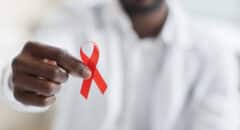 An HIV diagnosis comes with its very own set of issues to be aware of, as well as questions to ask and decisions to make. One of the most important is when you should start treatment.
An HIV diagnosis comes with its very own set of issues to be aware of, as well as questions to ask and decisions to make. One of the most important is when you should start treatment.
Here are just a few of the most important questions to ask yourself before you start your HIV treatment regimen:
1. Why do I want to start treatment?
This extremely important question is not to be confused with, “Why does my doctor say I should start treatment?” It’s a way of asking yourself what you want to get out of treatment, and it gets straight at whether you believe that antiretrovirals are necessary to manage your HIV infection.
Starting and staying on HIV treatment is a supreme act of self-respect. This question can unmask any lurking reluctance you may have to take care of yourself. It helps clarify what your main motivation will be to take your HIV medications day after day.
2. Am I ready?
The list of reasons for starting treatment earlier than later only gets longer as the supporting data keeps rolling in. But that doesn’t mean it’s obvious when you should start. The biggest variable in sustained treatment success is you: the person who will have to take meds the right way, every day, indefinitely.
3. Which regimen will still let me live my life?
The greatest combination of medications the world has to offer isn’t worth much unless it makes it down your gullet as prescribed, every day. It can be hard enough to start taking daily medications, let alone have to make radical changes to your daily routine for them.
4. Have I surrendered to the truth that I have HIV/AIDS?
Denial and shame aren’t good for your health, and they can really interfere with your ability to commit to treatment. Some people start treatment because they’re “supposed to” or because their doctors think they should, not because they choose to do it as an act of self-preservation. They do it grudgingly, like a chore you do because someone asked you nicely to do but you really can’t wait to finish — and, honestly, you never got why it was important to do, anyway.
Let’s face it: Going on treatment means acknowledging, every day, “I have HIV/AIDS.” What happens on the days you don’t much want to acknowledge that — to yourself or to others around you? A treatment regimen is dangerous place to play out resentments.
5. Who will I tell about my regimen?
Never underestimate the power of support: Hearing a friendly “Have you taken your meds today?” can go a long way toward keeping you on the right path. Sure, it might get old, but it’s nice to have someone else paying attention, especially on those days you might not be.
It also can be surprisingly nice to have someone to talk to about your medications. Plus, you’ll likely be glad to have an extra pair of eyes and ears in treatment discussions with your doctor — or even just noticing how you’re doing.
6. Why this regimen?
When it comes to choosing your first regimen, you have a choice: You can either let your doctor choose your regimen for you, or you can be involved in the decision. As the person who has to go home and take the medications day in and day out, the second option is preferable.
Given that there are a number of very good regimens available to people who are new to HIV treatment, it makes good sense to ask your doctor: “Why this combination, and not that one?” or “What do you see as my best two options, which one do you prefer and why?” Also, if you have any specific concerns at all, like “I want to get pregnant” or “I do not want any disruption of my sleep,” bring them to the table and plop them down for your doctor to consider.
7. What side effects am I willing to tolerate?
Many times, people don’t even get tested for HIV until later in the disease process, when they already feel terrible (which is likely why they got tested). These people may have an easier time starting treatment because they know they will feel better once they get the virus under control.
8. How can I expect to feel on this regimen?
Don’t be surprised if your clinician only seems to talk about the likeliest medication side effects instead of the full range of possible ones. Maybe she or he fears that you are impressionable and talking about them will scare you off, or will make you think you have them when you actually don’t.
9. What if it doesn’t work?
As good as today’s HIV medications are, it’s possible that, for one reason or another, your first regimen might not work for you. Maybe you’ll find you are missing doses regularly. Or maybe your lab tests will show that your viral load isn’t dropping as much as it should. Or maybe some side effect will emerge that makes you want to just say no to treatment.
When you’re researching your first regimen and discussing it with your doctor, why not consider your second, just-in-case regimen, too? In fact, it’s a good idea to always have a plan B in mind.
10. Can I stop?
This is a question that does not get enough attention. Doctors don’t seem to relish talking about it — HIV treatment is “lifelong therapy,” after all, and studies have shown that people with HIV generally see their health slide when they stop taking meds.
However, occasions may arise that make a “treatment holiday” the realistic thing to do, so you might as well talk about it up front. This is especially important because some HIV drug regimens need to be stopped in a certain way, or in a certain order, to avoid the development of resistance.








